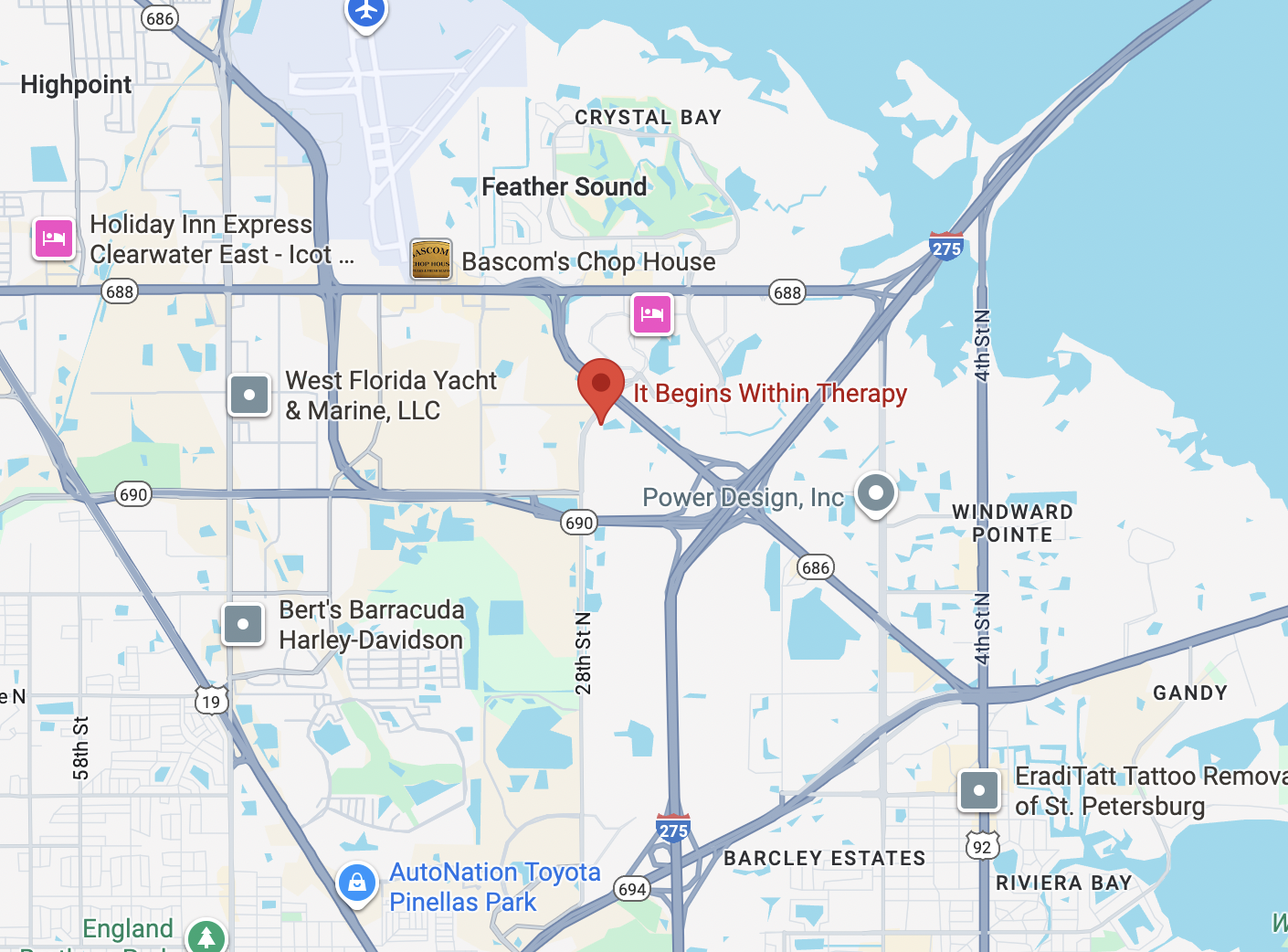Trauma Focused CBT
If you're reading this, your child has likely been through something no child should have to experience. Maybe someone referred you here. Maybe you're searching desperately after another refusal to go to school, another explosive outburst that doesn't match your gentle child. You're watching your son or daughter struggle with something too big for their little shoulders to carry, and you'd do anything to help them feel safe again.
You're in the right place. We specialize in healing childhood trauma and walk alongside hundreds of families through this exact moment. What you're feeling, the helplessness, the worry, the questions about whether your child will be okay, is completely normal. And there is a path forward.
What Is Trauma-Focused CBT?
Trauma-Focused CBT is a specialized form of therapy designed specifically to help children and adolescents recover from trauma. Unlike regular talk therapy, TF-CBT is structured, time-limited, and evidence-based—meaning decades of research prove it works.
This isn't traditional CBT adapted for trauma. It's a carefully designed protocol that addresses the unique ways trauma affects developing brains. TF-CBT combines trauma-sensitive interventions with cognitive behavioral techniques, and critically, it actively involves you as the parent or caregiver in your child's healing.
The approach recognizes that trauma doesn't just live in a child's thoughts—it lives in their body, their behaviors, their relationships, and their sense of safety in the world. TF-CBT addresses all of these dimensions.
How TF-CBT Works
TF-CBT follows a structured approach captured in the acronym PRACTICE, which represents the trauma-focused CBT steps:
Psychoeducation and Parenting Skills
We start by helping both you and your child understand trauma. What happened wasn't your child's fault. Their reactions—the nightmares, the anger, the fear—are normal responses to abnormal events. We equip you with skills to respond to trauma-related behaviors effectively and compassionately.
Relaxation and Stress Management
Children learn concrete tools to calm their nervous systems when trauma reminders trigger them. These might include breathing exercises, progressive muscle relaxation, or mindfulness techniques adapted for children.
Affective Modulation
Your child learns to identify, express, and regulate the intense emotions that trauma brings. We help them understand that feelings aren't dangerous and teach them healthy ways to manage emotional overwhelm.
Cognitive Coping
We address the unhelpful thoughts trauma creates—"It was my fault," "I'm not safe anywhere," "I can't trust anyone." Through gentle questioning and evidence gathering, we help children develop more accurate, balanced thoughts.
Trauma Narrative
This is the heart of TF-CBT. In a safe, gradual way, your child creates a narrative of what happened. This might be through talking, writing, drawing, or play. By facing the trauma memory in a controlled environment with a skilled therapist, the memory loses its power to control your child's life.
In Vivo Exposure
If your child is avoiding safe situations because they remind them of the trauma, we gradually help them reclaim their life through carefully planned exposure to these situations.
Conjoint Parent-Child Sessions
You and your child meet together with me to improve communication about the trauma and strengthen your relationship.
Enhancing Safety and Future Development
We work on preventing future trauma and helping your child move forward with healthy coping skills and confidence.
How Does TF-CBT differ from other approaches?
This model utilizes therapeutic interventions that focus of TF-CBT is to enable youth and their caregivers who have experienced traumatic events. The model serves to support the purpose effective skills to cope with trauma-related emotional and behavioral problems. This model allows for a family focused direction to enhance ways to manage trauma symptoms and enhance communication.
This model has been proven to provide guidance and the education to support parents to cope adaptively with their own emotional distress or mental health symptoms associated with the trauma. This model can also allow for a parent to understand how their own history of trauma can interfere with the understanding the role of a caregiver or child rearing capabilities.
In addition, this model gradually create opportunities for therapeutic discussion regarding the traumatic event for the youth and caregiver to create a shared narrative. The trauma narrative is different from other models. In that this model is for youth with a known history of traumatic events and supports to conceptualize the trauma history as a coherent, meaningful narrative. The youth and parent work alongside the therapist to identify of cognitive distortions and trauma-related themes in the narrative. This psychological therapy model seeks to support the identification of effective youth responses during the trauma experience and during treatment.
What Does TF-CBT Help Children Heal From?
TF-CBT was developed to treat children and adolescents who have experienced traumatic events. These include:
Physical or sexual abuse: Children who have been hurt by adults or older children they trusted need specialized help to process the betrayal and physical violations they experienced.
Witnessing domestic violence: Even when children aren't directly harmed, witnessing violence between caregivers is deeply traumatic and affects their sense of safety and their relationship templates.
Traumatic grief: Children who have lost loved ones suddenly or violently need support processing both their grief and the traumatic circumstances of the death.
Community violence: Children who witness shootings, violent crimes, or live in neighborhoods with chronic violence carry that trauma even if they weren't directly targeted.
Natural disasters: Hurricanes, fires, floods, and other disasters can be traumatic, especially when they result in loss of home, displacement, or injury.
Medical trauma: Serious illnesses, painful medical procedures, and life-threatening health events can be traumatic for children, particularly when they involve separation from parents.
Accidents: Car accidents, serious injuries, and other sudden traumatic events benefit from TF-CBT when they result in trauma symptoms.
School violence: Children who experience or witness violence at school, including school shootings, need trauma-specific support.
What all these experiences have in common is that they overwhelm a child's ability to cope and create lasting fear, helplessness, or horror. The beauty of TF-CBT is that it addresses the impact of trauma regardless of the specific type of traumatic event your child experienced.
Who Provides TF-CBT?
A licensed mental health provider (therapist, social worker, or psychologist) who has completed the TF-CBT certification model can provide this therapy. A TF-CBT Certified therapist has completed a learning collaborative, engaged in-person clinical training, and participated in ongoing consultation calls on cases for over a year.
How Effective Is TF-CBT?
Some research shows that trauma symptom scores decreased in youth by 81.9% among those who received TF-CBT. Randomized controlled trials has shown that 80% of children show significant improvement in less than 16 weeks. There are now more than 25 studies have been conducted to evaluate TF-CBT and it’s effectiveness on childhood trauma symptoms. The results consistently show TF-CBT to be useful in the reduction of symptoms of PTSD. The Mental Health Services Administration and American Psychological Association recommend the TF CBT treatment model. This model was originally designed for youth that have experienced sexual abuse. Now it is known that this model serves to treat various trauma experiences, including complex trauma. In the review of research and clinical trials it was found that TF-CBT, when compared to other tested models and services, yielded better post treatment results and suggested this model can promote enhanced progress in fewer clinical sessions. Follow-up studies suggest progress is maintained long term and over time.
What Does the Evidence Say About TF-CBT?
The research supporting TF-CBT is extensive and compelling. It's designated as an evidence-based treatment by virtually every major mental health organization, including the National Child Traumatic Stress Network, the Substance Abuse and Mental Health Services Administration, and the American Psychological Association.
Multiple randomized controlled trials—the gold standard of research—demonstrate that TF-CBT is more effective than other treatments for childhood trauma. These studies show improvements not just in PTSD symptoms, but also in depression, anxiety, behavioral problems, and shame related to trauma.
The evidence spans diverse populations and trauma types. TF-CBT has been proven effective for children who have experienced sexual abuse, physical abuse, domestic violence, traumatic grief, community violence, natural disasters, and medical trauma. It works across different cultural backgrounds when delivered with cultural sensitivity.
Perhaps most importantly, the benefits last. Follow-up studies show that children maintain their gains months and even years after completing TF-CBT. This isn't a temporary fix—it's genuine healing.
My doctoral research at UCF examined TF-CBT implementation in high-poverty schools in Orlando, where children face multiple adversities. Even in these challenging circumstances, with appropriate training and supervision, TF-CBT produced significant improvements in trauma symptoms and functioning. This taught me that while trauma is universal, so is children's capacity to heal when given the right support.
Limitations of TF-CBT
TF-CBT may not be appropriate for youth and adolescents with risky or dangerous symptoms, such as serious conduct problems, psychosis, or other significant behavioral problems. If someone is suicidal or engages in abuse of substances should not be recommended for TF-CBT initially. The gradual exposure and in-vivo exposure component of TF-CBT may cause symptoms to worsen temporality.
TF-CBT in Florida
tf-cbt Therapist in st. petersburg
Our St. Petersburg office serves individuals and couples across Pinellas County, including Clearwater, Largo, Gulfport, Seminole, Feather Sound, and Treasure Island.
tf-cbt therapist in tampa
Tampa therapy services located near Westshore and South Tampa - serving children and families across Hillsborough County.
tf-cbt therapy in sarasota
Our Sarasota location welcomes families from across the Suncoast region, including Lakewood Ranch, Bradenton, Venice, Siesta Key, and Palmer Ranch.
Meet Our Trauma Focused CBT Therapists
Commonly Asked Questions About TF-CBT
What is the difference between trauma-focused CBT and CBT?
Regular Cognitive Behavioral Therapy (CBT) is a broad therapeutic approach that helps people change unhelpful thinking and behavior patterns across various mental health concerns like anxiety or depression. Trauma-Focused CBT is a specialized form of CBT designed exclusively for children and teens who have experienced trauma. The key differences include TF-CBT's trauma-specific components like the trauma narrative and gradual exposure work, its central focus on parent involvement rather than individual-only treatment, its developmental tailoring for children's specific ages and stages, and its emphasis on safety and stabilization before trauma processing. While a general CBT therapist might help with trauma symptoms, a TF-CBT specialist uses a proven protocol specifically designed to help children heal from traumatic experiences comprehensively.
How long is trauma-focused CBT?
TF-CBT typically consists of 12 to 20 sessions conducted weekly, meaning most children complete treatment in approximately three to five months. The specific length depends on factors like the type and severity of trauma, the child's age, the presence of multiple traumas, and the child's and family's progress through each phase of treatment. Some children with single-incident trauma and strong support systems may need fewer sessions, while those who experienced complex or chronic trauma may benefit from the full 20 sessions or occasionally more. What matters most is completing all phases of the PRACTICE model rather than rushing through treatment. Research demonstrates that children who complete the full TF-CBT protocol have significantly better outcomes than those who discontinue treatment early.
What is trauma-focused CBT for PTSD?
TF-CBT is considered the gold-standard treatment for childhood Post-Traumatic Stress Disorder (PTSD). The protocol specifically targets each PTSD symptom cluster: intrusive memories and flashbacks are processed through trauma narrative work, avoidance behaviors are addressed through gradual exposure, negative thoughts and beliefs are challenged through cognitive processing, and hyperarousal is managed through relaxation and regulation skills. Research shows that approximately 80% of children with PTSD who complete TF-CBT no longer meet diagnostic criteria for PTSD after treatment. Beyond symptom reduction, TF-CBT for PTSD helps children regain functioning in school, relationships, and daily activities that trauma had disrupted. The approach is effective whether PTSD resulted from a single traumatic event or multiple traumas over time.
Is TF-CBT only for children?
TF-CBT was specifically designed for children and adolescents ages 3 to 18 who have experienced trauma, though it's most commonly used with school-age children and teens. The protocol's developmental focus, parent involvement components, and age-appropriate therapeutic techniques make it uniquely suited for young people whose brains are still developing. While adults can certainly benefit from trauma-focused cognitive behavioral approaches, the TF-CBT protocol itself is tailored to children's developmental needs and family systems. For adults who experienced childhood trauma or recent traumatic events, other evidence-based treatments like Cognitive Processing Therapy (CPT) or Prolonged Exposure (PE) may be more appropriate. However, young adults ages 18-21 who are still closely connected to their families sometimes benefit from TF-CBT, particularly if the trauma occurred during childhood or adolescence.

Schedule Free Consultation
We offer comprehensive mental health services and free consultations for all of our skilled therapists. Our belief is that the strongest factor in your success through therapy is the relationship with your therapist - and we want to ensure that.








